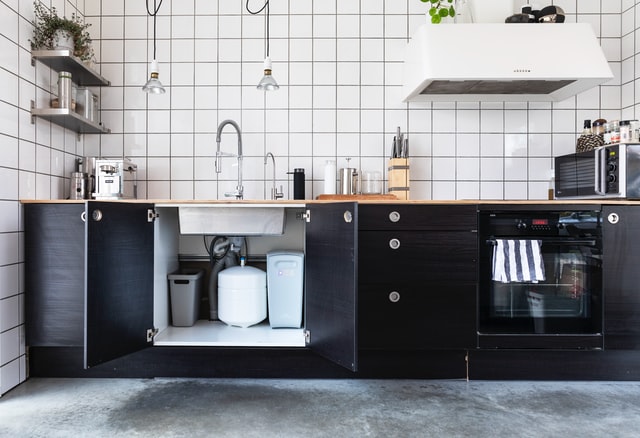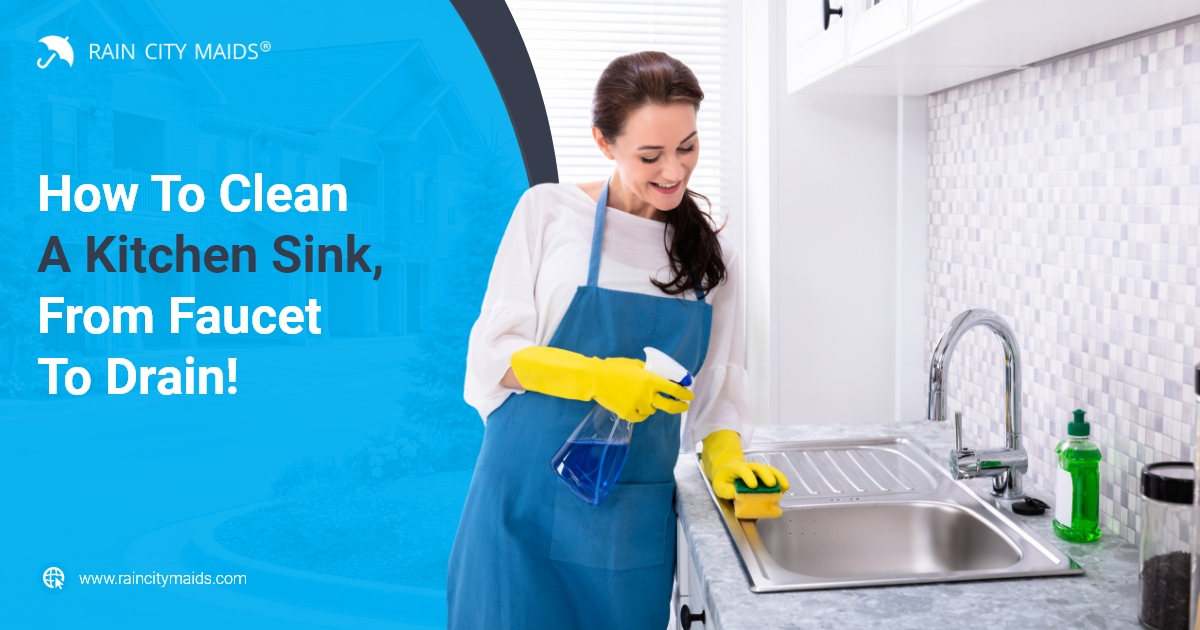1. How to Get Rid of a Stinky Sink Drain
Dealing with a stinky kitchen sink drain can be a frustrating and unpleasant experience. Not only does it make your whole kitchen smell bad, but it can also be a sign of underlying issues with your pipes. Luckily, there are several effective solutions for getting rid of that foul odor and keeping it from coming back.
2. Common Causes of Smelly Kitchen Sink Pipes
Before we dive into solutions, it's important to understand what can cause your kitchen sink pipes to stink in the first place. The most common culprit is food debris and grease buildup. When food particles and grease get stuck in your pipes, they can start to decompose and produce a foul smell. Other causes may include a clogged drain, a leaky pipe, or even a sewer gas leak.
3. DIY Solutions for Stinky Kitchen Sink Pipes
If you're dealing with a mild case of stinky kitchen sink pipes, try some DIY solutions before calling in a professional. One effective method is to pour a mixture of hot water, baking soda, and vinegar down the drain. The hot water will help dissolve any built-up grease, while the baking soda and vinegar will neutralize the odor. You can also try using lemon or orange peels to freshen up your drain.
4. How to Clean and Deodorize Kitchen Sink Pipes
If the DIY solutions don't seem to be working, it may be time for a more thorough cleaning. You can use a pipe snake or a plunger to dislodge any clogs in your pipes. Then, pour a mixture of hot water and dish soap down the drain to help break down any remaining grease and food particles. You can also use a specialized pipe cleaner or enzyme-based cleaner to help remove any buildup and eliminate odors.
5. Natural Remedies for Smelly Kitchen Sink Pipes
If you prefer to use natural remedies, there are a few options to try. One is to mix equal parts of salt, baking soda, and cream of tartar and pour it down the drain. Let it sit for a few minutes, then pour hot water down the drain to flush it out. Another option is to use a mixture of hot water and essential oils, such as lemon or peppermint, to help deodorize your pipes.
6. Tips for Preventing Stinky Kitchen Sink Pipes
The best way to deal with stinky kitchen sink pipes is to prevent them from happening in the first place. This means being mindful of what you put down your drain and regularly cleaning and maintaining your pipes. Avoid pouring grease and oils down the drain, and use a drain strainer to catch food particles. You can also pour hot water down the drain once a week to help prevent buildup.
7. Signs of a Clogged Kitchen Sink Drain
If your kitchen sink pipes are frequently emitting a foul odor, it may be a sign of a clogged drain. Other signs to look out for include slow drainage, gurgling sounds, and water backing up into the sink. If you notice any of these signs, it's important to address the clog as soon as possible to prevent further issues.
8. Professional Solutions for Stinky Kitchen Sink Pipes
If the DIY and natural remedies don't seem to be working, it may be time to call in a professional plumber. They can use specialized tools and techniques to thoroughly clean and unclog your pipes, as well as identify and fix any underlying issues. This can help eliminate the stinky odor and ensure your pipes are functioning properly.
9. How to Identify and Fix Leaky Kitchen Sink Pipes
In some cases, a stinky kitchen sink drain may be caused by a leaky pipe. This can allow sewer gases to escape and cause a foul odor. If you suspect a leak, check for any visible signs of water or moisture around your pipes. You may also notice an increase in your water bill. If you find a leak, it's important to fix it as soon as possible to prevent further damage and eliminate the smell.
10. The Importance of Regularly Cleaning Kitchen Sink Pipes
Regularly cleaning and maintaining your kitchen sink pipes is essential for preventing stinky odors and ensuring your pipes are functioning properly. It's recommended to deep clean your pipes at least once a month to remove any buildup and keep them smelling fresh. This will also help prevent clogs and leaks, saving you from costly repairs in the long run.
The Solution to Stinky Kitchen Sink Pipes: Proper Design and Maintenance
/how-to-install-a-sink-drain-2718789-hero-24e898006ed94c9593a2a268b57989a3.jpg)
Understanding the Problem
 If you've ever experienced a foul odor coming from your kitchen sink, you're not alone. This common issue is often caused by buildup and clogs within the pipes. As food scraps, grease, and other debris get stuck in the pipes, they can begin to decompose and emit a strong, unpleasant smell. Not only is this odor unpleasant, but it can also be a sign of potential plumbing issues that can result in costly repairs. Fortunately, there are ways to prevent and address this problem through proper kitchen sink design and maintenance.
If you've ever experienced a foul odor coming from your kitchen sink, you're not alone. This common issue is often caused by buildup and clogs within the pipes. As food scraps, grease, and other debris get stuck in the pipes, they can begin to decompose and emit a strong, unpleasant smell. Not only is this odor unpleasant, but it can also be a sign of potential plumbing issues that can result in costly repairs. Fortunately, there are ways to prevent and address this problem through proper kitchen sink design and maintenance.
The Importance of Proper Design
 When it comes to kitchen sink pipes, proper design is crucial in preventing stinky odors. The layout of your pipes can greatly impact the flow of water and debris, making it easier or more difficult for clogs to form. A well-designed kitchen sink should have a downward slope in the pipes, allowing water and debris to easily flow towards the main sewer line. Additionally, having a garbage disposal can also help break down food scraps and prevent them from causing clogs.
When it comes to kitchen sink pipes, proper design is crucial in preventing stinky odors. The layout of your pipes can greatly impact the flow of water and debris, making it easier or more difficult for clogs to form. A well-designed kitchen sink should have a downward slope in the pipes, allowing water and debris to easily flow towards the main sewer line. Additionally, having a garbage disposal can also help break down food scraps and prevent them from causing clogs.
Maintenance Tips to Keep Your Pipes Fresh
 In addition to proper design, regular maintenance is key to keeping your kitchen sink pipes smelling fresh. One important step is to avoid pouring grease and oil down the drain, as they can solidify and cause clogs. Instead, dispose of these substances in a sealed container or wipe them off with a paper towel before washing your dishes. It's also recommended to periodically pour boiling water down the drain to help melt away any buildup. Another helpful tip is to use a mixture of baking soda and vinegar to clean and deodorize your pipes. Simply pour the mixture down the drain, let it sit for a few minutes, and then flush it out with hot water.
Overall, proper kitchen sink design and maintenance are crucial in preventing stinky pipes and maintaining a fresh-smelling home.
By following these tips and incorporating them into your regular cleaning routine, you can prevent clogs and keep your pipes in top condition. If you continue to experience strong odors despite your efforts, it may be time to call a professional plumber to assess and address any underlying issues. Don't let stinky kitchen sink pipes ruin your home's atmosphere - take proactive steps to keep them fresh and clean.
In addition to proper design, regular maintenance is key to keeping your kitchen sink pipes smelling fresh. One important step is to avoid pouring grease and oil down the drain, as they can solidify and cause clogs. Instead, dispose of these substances in a sealed container or wipe them off with a paper towel before washing your dishes. It's also recommended to periodically pour boiling water down the drain to help melt away any buildup. Another helpful tip is to use a mixture of baking soda and vinegar to clean and deodorize your pipes. Simply pour the mixture down the drain, let it sit for a few minutes, and then flush it out with hot water.
Overall, proper kitchen sink design and maintenance are crucial in preventing stinky pipes and maintaining a fresh-smelling home.
By following these tips and incorporating them into your regular cleaning routine, you can prevent clogs and keep your pipes in top condition. If you continue to experience strong odors despite your efforts, it may be time to call a professional plumber to assess and address any underlying issues. Don't let stinky kitchen sink pipes ruin your home's atmosphere - take proactive steps to keep them fresh and clean.




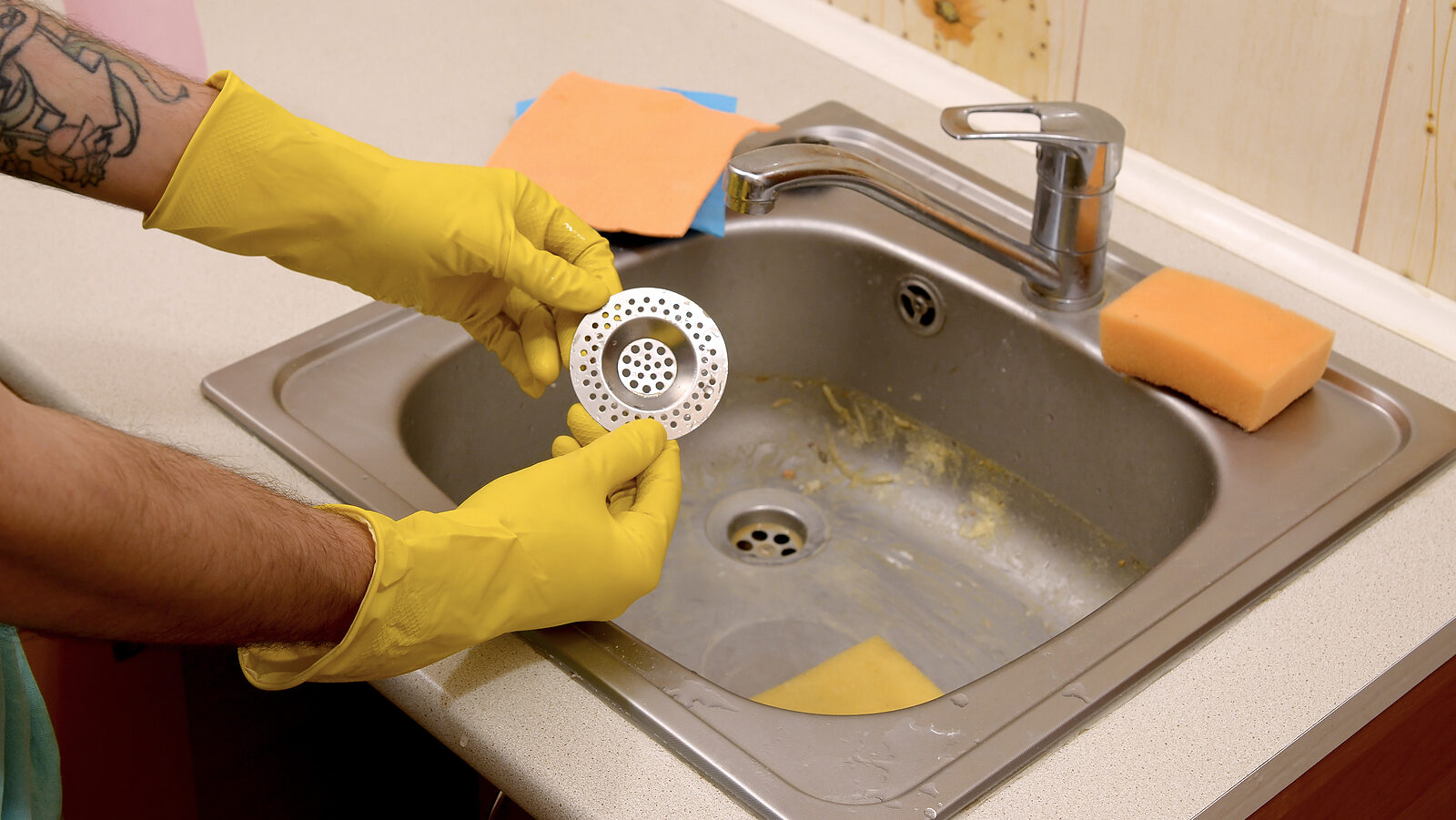









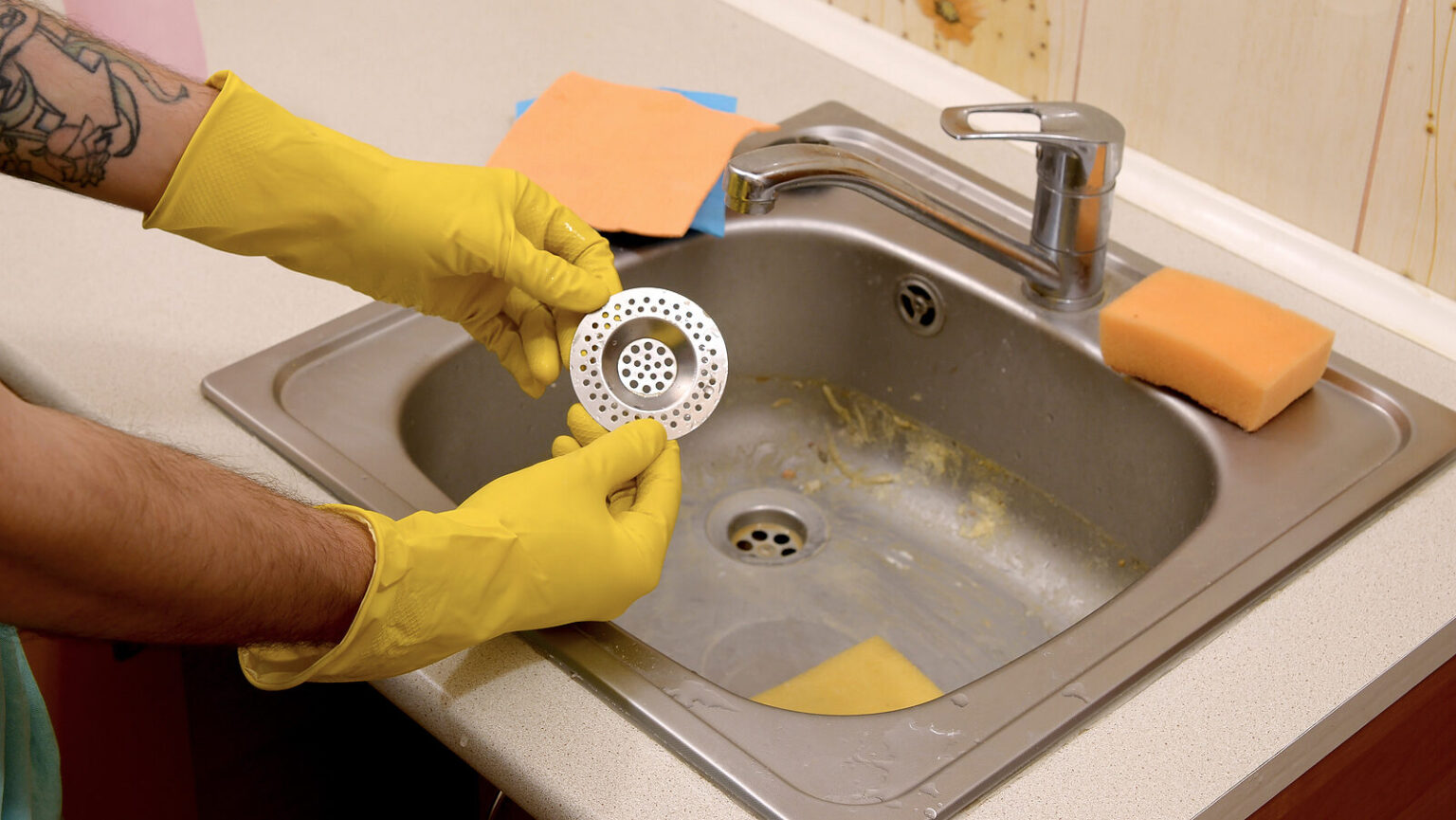

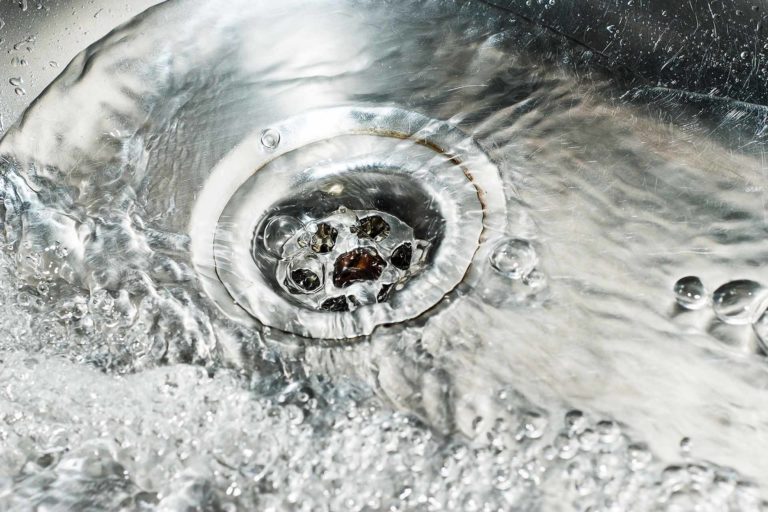
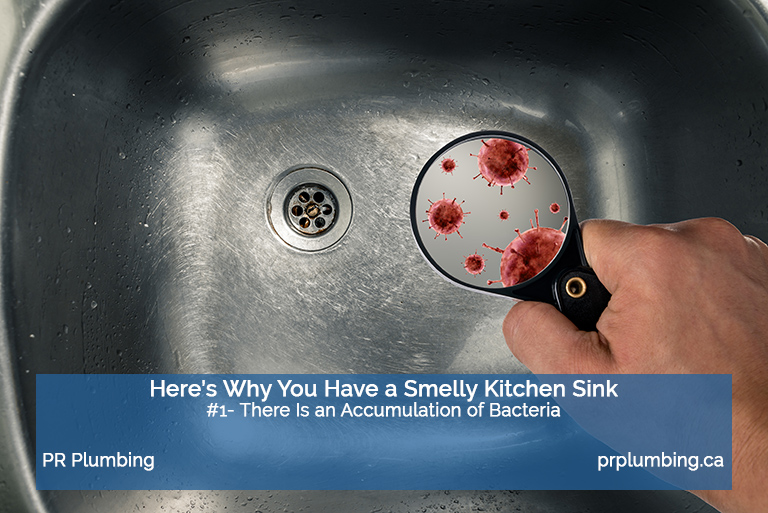










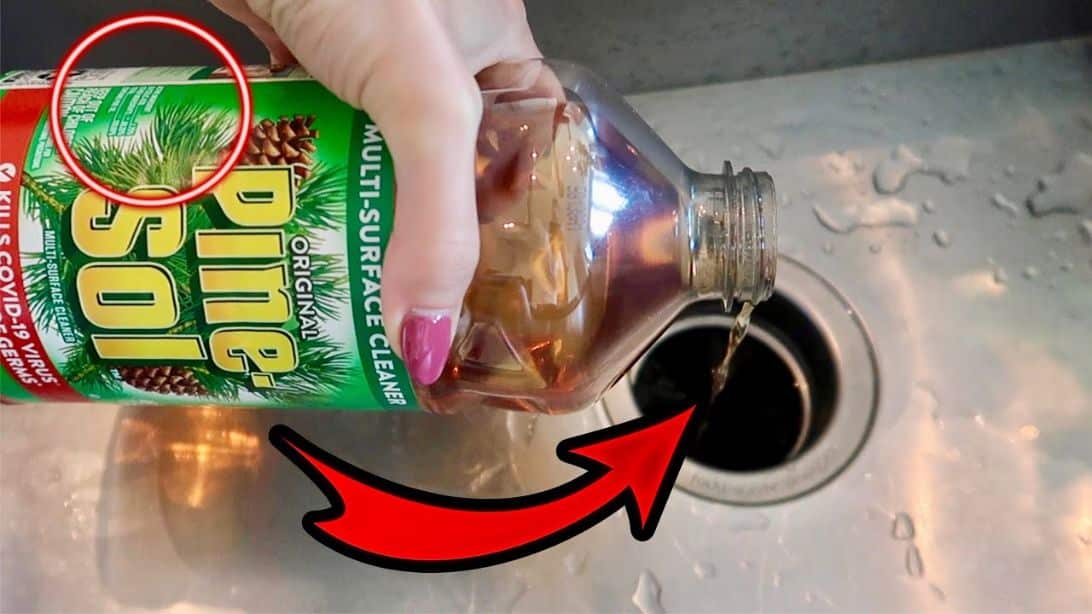
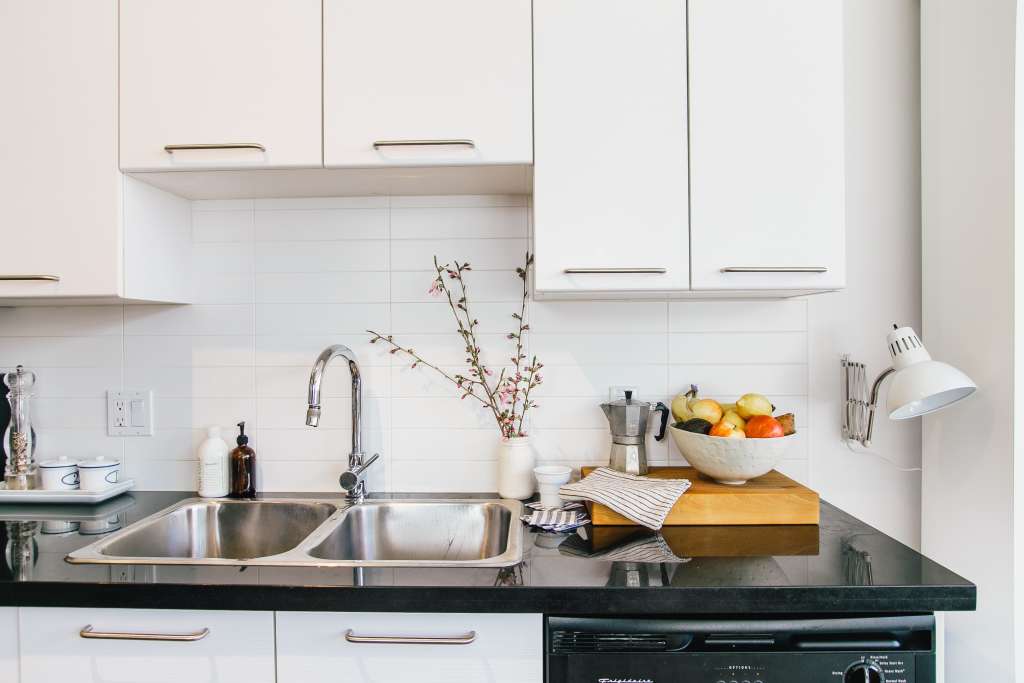







:max_bytes(150000):strip_icc()/freshen-and-unclog-drain-with-baking-soda-1900466-22-bbf940b70afa4d5abef0c54da23b1d3f.jpg)
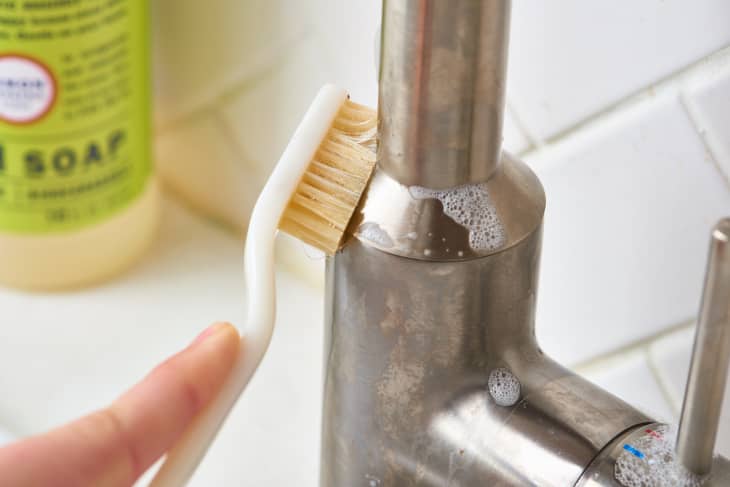


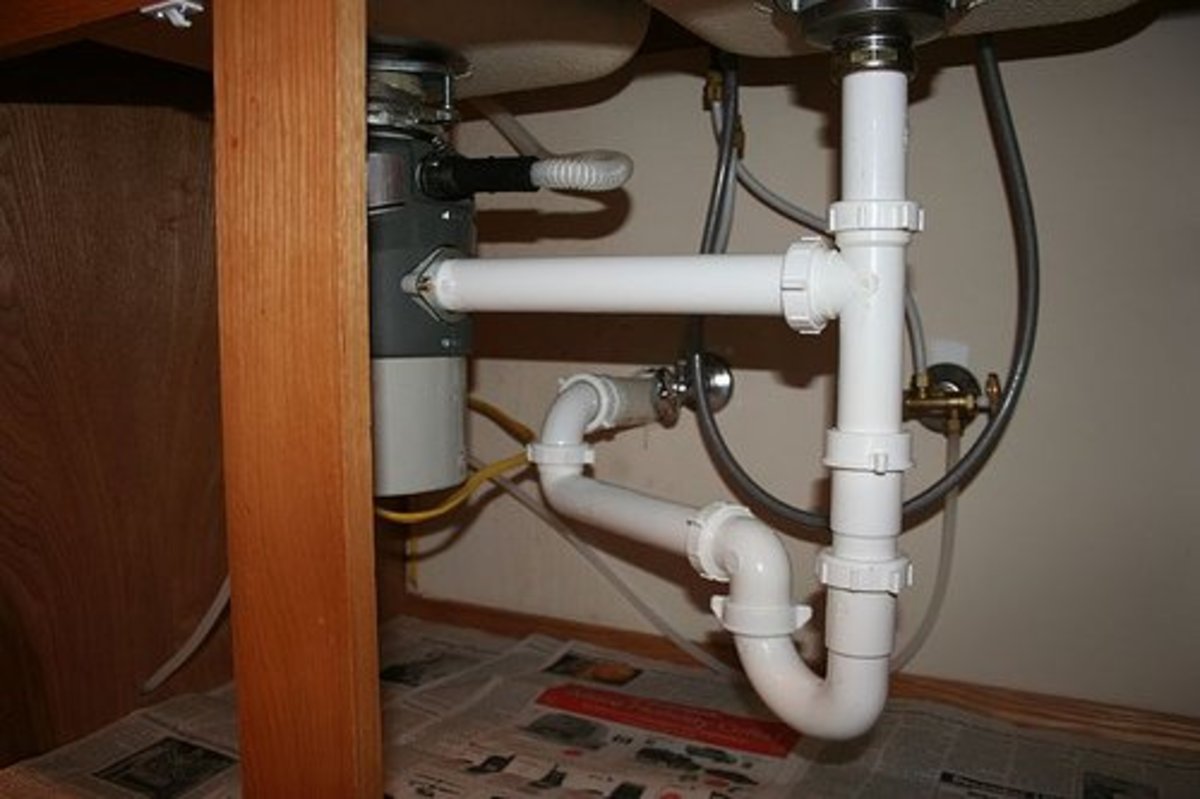






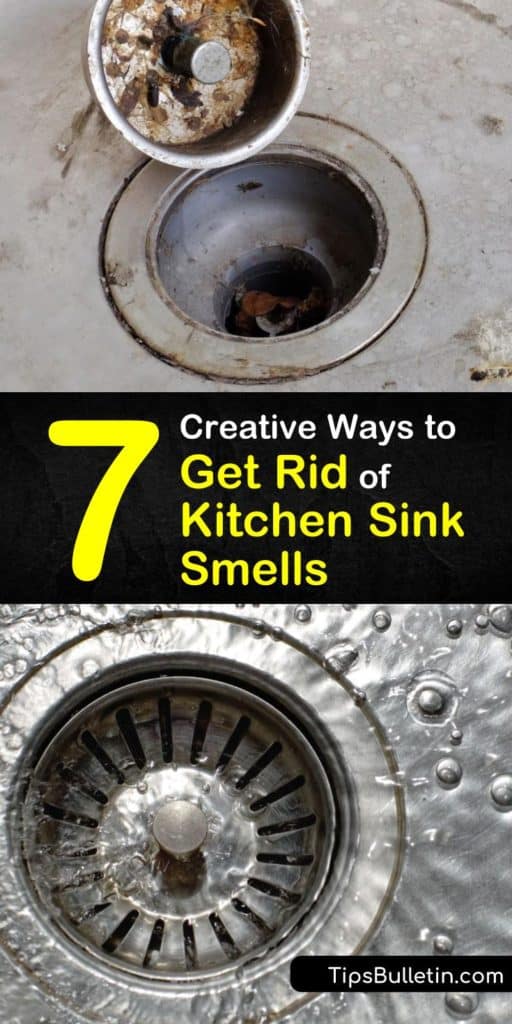

:max_bytes(150000):strip_icc()/why-does-my-kitchen-sink-smell-like-sewage-4707719_01-2030e27351fe4c6c9e1d94145dbbe30a.jpg)







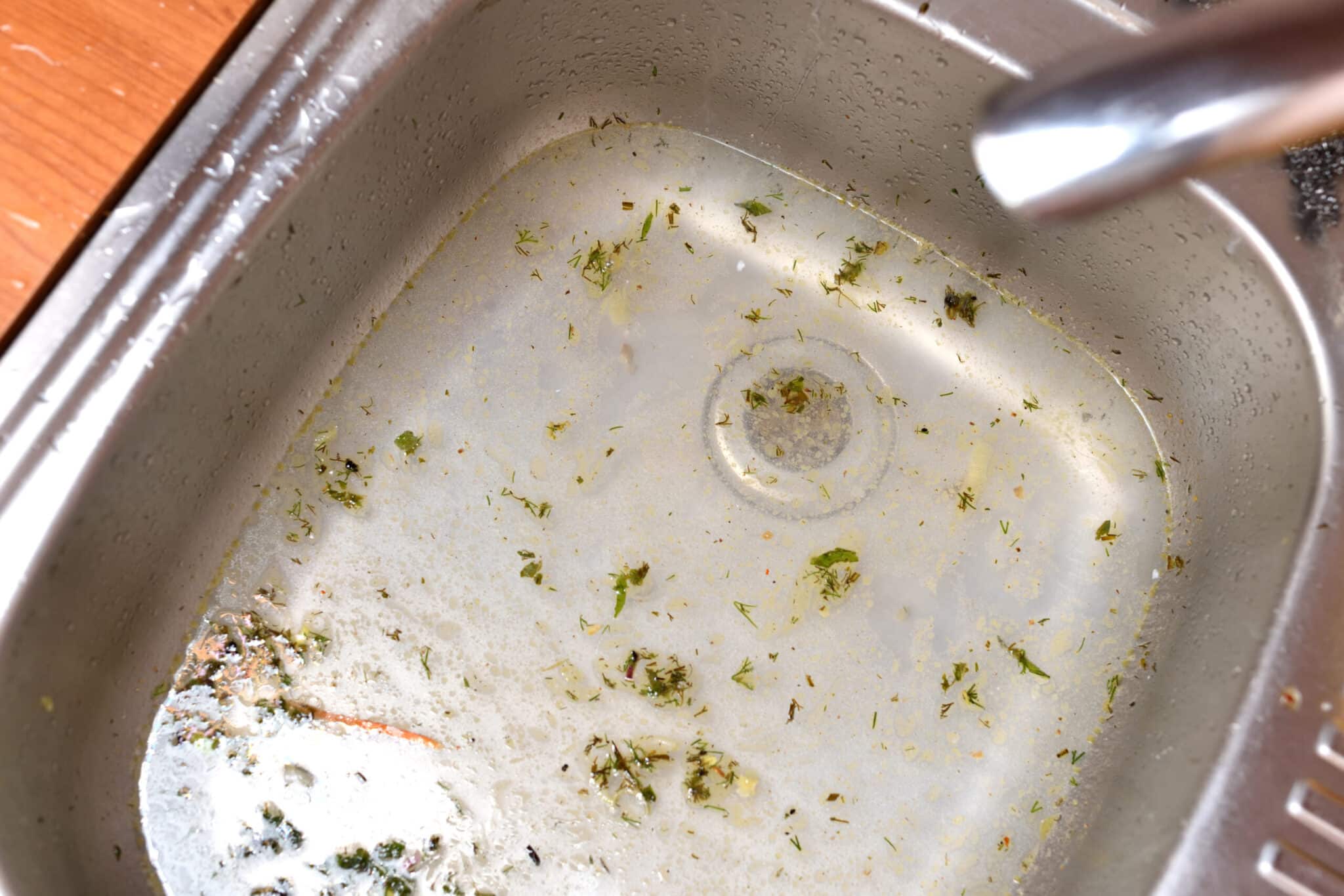








.png)












